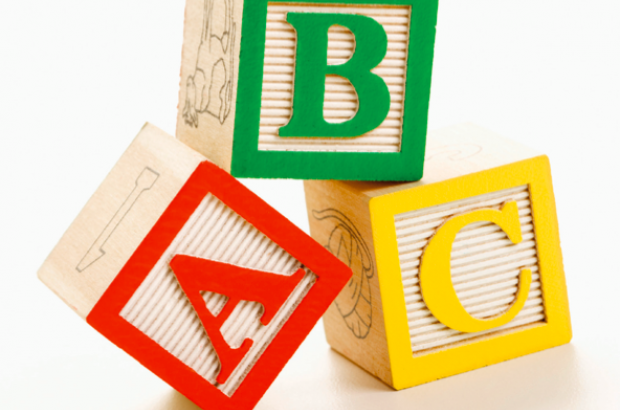- Daily & Weekly newsletters
- Buy & download The Bulletin
- Comment on our articles
Back to school: The Bulletin's guide to alternative and special-needs education
Traditional Belgian schools can be too strict, busy and demanding for certain children, and extensive individual guidance is not always possible. Alternative teaching methods appeared across Europe in the early decades of the last century, instigated by progressive thinkers like Maria Montessori in Italy, Ovide Decroly in Belgium, Célestin Freinet in France and Rudolf Steiner in Austria. In the US, the influential Sudbury Valley School was founded at Framingham, Massachusetts, in 1968.
The influence of their ideas is apparent to some extent in current mainstream education. Despite their internal differences, Ecoles Decroly, Hamaide, En Couleurs, Singelijn and L’Autre Ecole (all located around Brussels) as well as the country’s Montessori, Steiner and Sudbury schools are all based on the same essential assumption: the pur- pose of education is not to fill minds with factual knowledge but to trigger an ability and a desire to learn.
The majority of these establishments do not re- quire children to repeat their year should they not pass – at least not until the third or fourth year of secondary education. In alternative schools, children help to draw up the school’s programmes and rules, competition is out and marks are introduced as late in life as possible. Except for the more expensive Montessori and Sudbury schools, most alternative schools in Belgium are subsidised and free or democratically priced.
As most limit themselves to pre-school and primary education, the overwhelming majority of children have to make the transition into the mainstream system at some point. Children can also follow individual or collective home education. Any school that’s not recognised by the government is considered collective home education, except European schools and those with an international curriculum accepted by the government.
Home education is becoming increasingly popular throughout Belgium, as shown by recent statistics. The number of students in Dutch-speaking home education increased from 921 in the school year 2010-2011 to 1,065 in 2012-2013. In the French-speaking region, numbers rose from 715 to 885 in the same period.
A new decree in Flanders obliges all home-school- ed children aged 11 and 15 to take an exam at the Flemish exam commission to get a certificate for primary education and the first grade of secondary education. If they don’t pass on the second attempt, they have to move to a school recognised by the Flemish government.
Special needs education
If children have special educational needs, they receive extra attention in the Belgian education system. These needs may be the result of blind- ness, deafness or another physical handicap, or because of intellectual deficiencies, psychological disorders or learning difficulties.
In Belgium, most of these children attend special, segregated schools where they benefit from smaller class sizes and individual guidance from specially trained teachers and educational therapists. In Dutch-speaking education, however, the M decree has taken effect. This consists of measures that enable more students with special educational needs to register and remain in regular education.
The European schools also make some provision for children with special needs forms of disabilities, and free shuttle buses are organised between children’s homes and the nearest suitable school. At one end of the spectrum, some schools concentrate on occupational and wellness activities where there is no prospect of the child ever acquiring the autonomy required to live independently. At the other end, schools guide children through the same stages as mainstream education, using different methods and at their own speed, with a view to joining the mainstream system at a later stage. For those in between, various schools offer professional training in fields such as construction, catering or horticulture.
But Belgium is behind the UK and US in providing specialist education for autistic children. Some specialist schools apply behavioural therapies and there are therapeutic centres that welcome autistic children on a full-board basis. While these are subsidised, places are limited.
For children at the high-functioning end of the spectrum, or those with Asperger’s syndrome, there are virtually no places in specialist schools. Many such children are integrated within the normal school system and if they are unable to follow the curriculum, they are home-schooled. There are more systems in place in Flanders than Wallonia, resulting in a growth in the number of private schools for high-functioning or Asperger’s teenagers in the French-speaking community.
Expat families whose children have special needs would be well advised, if they have the financial means, to consider the international schools, many of which provide high-quality learning support, though often at an additional cost. The International School of Brussels in Watermael-Boitsfort offers speech and language therapy, therapeutic horse riding and workshops for parents. The European schools also make some provision for children with special needs – admissions and conditions are discussed on a case-by-case basis.
This article first appeared in The Bulletin Newcomer spring 2016










Comments
Dreadful article, badly written and in parts quite inaccurate. Sounds like certain schools have paid to have their names included, whilst plenty of schools offer special needs, why only mention one of them!
It’s good to see Belgium schools has improved their educational system and providing special children extra care and knowledge. Giving them extra time is what makes a child future. Home school education in Belgium is one of the greatest gift for those special children, where they don’t have to move that much. At https://www.paperwriting.co.uk/ there are some special courses which you can take through home for special students. It’s not as vast as Belgium schools but UK has been moving towards providing the education to every house and children.